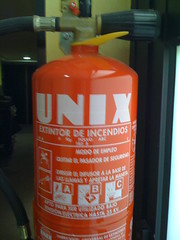

| Main index | Section 3 | 日本語 | Deutsch | Options |
#include <stdio.h>
The argument mode points to a string beginning with one of the following letters:
| "r" | Open for reading. The stream is positioned at the beginning of the file. Fail if the file does not exist. |
| "w" | Open for writing. The stream is positioned at the beginning of the file. Truncate the file to zero length if it exists or create the file if it does not exist. |
| "a" | Open for writing. The stream is positioned at the end of the file. Subsequent writes to the file will always end up at the then current end of file, irrespective of any intervening fseek(3) or similar. Create the file if it does not exist. |
An optional "+" following "r", "w", or "a" opens the file for both reading and writing. An optional "x" following "w" or "w+" causes the fopen() call to fail if the file already exists. An optional "e" following the above causes the fopen() call to set the FD_CLOEXEC flag on the underlying file descriptor.
The mode string can also include the letter "b" after either the "+" or the first letter. This is strictly for compatibility with ISO/IEC 9899:1990 ("ISO C90") and has effect only for fmemopen(); otherwise "b" is ignored.
Any created files will have mode " S_IRUSR amp;| S_IWUSR amp;| S_IRGRP amp;| S_IWGRP amp;| S_IROTH amp;| S_IWOTH " (0666), as modified by the process' umask value (see umask(2)).
Reads and writes may be intermixed on read/write streams in any order, and do not require an intermediate seek as in previous versions of stdio. This is not portable to other systems, however; ISO/IEC 9899:1990 ("ISO C90") and IEEE Std 1003.1 ("POSIX.1") both require that a file positioning function intervene between output and input, unless an input operation encounters end-of-file.
The fdopen() function associates a stream with the existing file descriptor, fildes. The mode of the stream must be compatible with the mode of the file descriptor. The "x" mode option is ignored. If the "e" mode option is present, the FD_CLOEXEC flag is set, otherwise it remains unchanged. When the stream is closed via fclose(3), fildes is closed also.
The freopen() function opens the file whose name is the string pointed to by path and associates the stream pointed to by stream with it. The original stream (if it exists) is closed. The mode argument is used just as in the fopen() function.
If the path argument is NULL, freopen() attempts to re-open the file associated with stream with a new mode. The new mode must be compatible with the mode that the stream was originally opened with: Streams open for reading can only be re-opened for reading, streams open for writing can only be re-opened for writing, and streams open for reading and writing can be re-opened in any mode. The "x" mode option is not meaningful in this context.
The primary use of the freopen() function is to change the file associated with a standard text stream ( stderr, stdin, or stdout).
The fmemopen() function associates the buffer given by the buf and size arguments with a stream. The buf argument is either a null pointer or point to a buffer that is at least size bytes long. If a null pointer is specified as the buf argument, fmemopen() allocates size bytes of memory. This buffer is automatically freed when the stream is closed. Buffers can be opened in text-mode (default) or binary-mode (if "b" is present in the second or third position of the mode argument). Buffers opened in text-mode make sure that writes are terminated with a NULL byte, if the last write hasn't filled up the whole buffer. Buffers opened in binary-mode never append a NULL byte.
| [EINVAL] | |
| The mode argument to fopen(), fdopen(), freopen(), or fmemopen() was invalid. | |
The fopen(), fdopen(), freopen() and fmemopen() functions may also fail and set errno for any of the errors specified for the routine malloc(3).
The fopen() function may also fail and set errno for any of the errors specified for the routine open(2).
The fdopen() function may also fail and set errno for any of the errors specified for the routine fcntl(2).
The freopen() function may also fail and set errno for any of the errors specified for the routines open(2), fclose(3) and fflush(3).
The fmemopen() function may also fail and set errno if the size argument is 0.
| FOPEN (3) | September 1, 2023 |

| Main index | Section 3 | 日本語 | Deutsch | Options |
Please direct any comments about this manual page service to Ben Bullock. Privacy policy.
